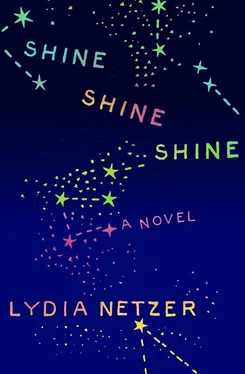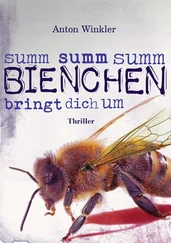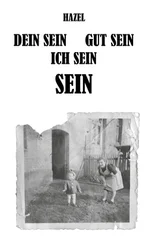“Are you doing okay back there?” a nurse asked her. She had been given two black pens with which to sign all the papers. A pen and a backup pen. But the first pen had worked just fine.
“I’m done, I think,” Sunny said. “I think I’m done.”
* * *
DEATH IS GRUESOME. THERE is nothing romantic about it. Decay, both cruel and gentle, starts immediately. Raised on a farm in farm country, Sunny was not a stranger to death. She had seen dead birds, cats, many deer, a dead horse lying in a pasture, kicked it over and over, and shouted, “Live! Live! Live, goddammit!” She had even raised a sheep as a 4-H project one year, unclear on the term “market lamb.” Nu built it a dog house which Sunny decorated with fresh flowers every week, and they painted “Blossom” over the door. She fed it from her hand, brushed its face, and knew complete shock and horror when at the end of the county fair it was sold to a local butcher. After that she hated sheep. “I thought you knew,” the mother said. “I thought you knew what it meant.”
Other kids raised animals to sell at auction year after year, and Maxon was one of them. He raised a pig every year, starting at age nine, except the year he was eleven, when his pig died inexplicably in June. He had always kept his money separate from his mother’s little hoard, in stump stashes in the woods and around town, locations known only to him. From his own funds, he paid for his stock, paid for its keep, kept scrupulous accounts. During the week of the fair he would mingle with the other boys, all in torn jeans and Western shirts. Their scruffy boots knocked against the cement floor in the pig barn as they stepped up from the dirt road that wound through the fairgrounds. Their tough knuckles scraped against the various gates and fences rigged with twine and latches to keep the pigs in pens. The little boys were junior versions of the big boys, getting more taciturn by the year, growing patchy facial hair, adopting a favorite ball cap, sprouting Adam’s apples.
After the sheep fiasco, Sunny didn’t raise any more market animals, but she took her horse to the fair every year, and stuck close to Maxon every day. All the high-school kids hung around in the pig barns, sitting on the slatted fences, chewing gum and pushing each other. There were the horse barns, where girls spent hours picking up every turd and hanging streamers from their horses’ stalls to win the Good Housekeeping prize. There were beef barns, where the ponderous steers had their tails teased up into perfect balls of hair. But the pig barns were where the pocket flasks were passed around discreetly, where a slanted gaze could catch fire and lead to a raucous nudge. The boys smelled a little, the girls all wore ponytails, and the space in the middle of the torso was frequently grasped and pulled with a roughness that led to horseplay.
Pigs are earthy; their proximity may lead to carnal thoughts. Showing a pig at a county fair is a dangerous business, and the great relief that follows makes you giddy. Pigs are never really trained, no matter how arduously you practice them, and they’re vicious as wild dogs sometimes. For every group of kids in the ring with their pigs on the loose and a curved stick in their hands to guide them around, there was also a group of dads, alert, carrying plywood sheets. The purpose of these sheets was to shove down between two pigs that started going at it. On pig day there was usually blood drawn, and the event always drew a crowd. The kids who won the showmanship trophy moved low, crouched right down over their pigs, watched the judge like a cat. They carried a scrub brush in one pocket and a squirt bottle in the other, and always with their pronged stick ready to hook the pig’s ear and drag it off its purpose. Maxon never won showmanship, because he wouldn’t make eye contact with the judge.
It was on the last day of the 4-H fair, during the last summer before Maxon would go away to college. He had a scholarship to MIT, and Emma Butcher was paying his room and board. He was eighteen. Sunny had felt restless all day, had not wanted to dive into the partying that was going on, especially with the seniors. She and Maxon sat on the fence down in the warm-up riding ring attached to the big arena, where the equestrian jumpers were loping in big circles, getting ready for their turn in the ring. The competition was fault and out—one knock of a hoof on a jump and that competitor was out of the running. You had to go clean, clean all the way around, and there was no second place for coming close. Maxon watched the horses peacefully, his skin browning in the August sun. But Sunny fidgeted next to him, kicking at the fence, tearing pieces from a little knothole with her thumb.
“Maxon, I feel jumpy and weird,” she said, squinting across the dusty ring toward the bleachers. She could see her mother and Nu sitting next to each other under a golf umbrella.
“What’s the matter,” he said to her mechanically.
“Let’s take a walk,” she said. She slid off the fence, brushed the back of her jeans with both palms, pulled a sun hat out of her pocket and clamped it on her head.
They walked, hand in hand, across the warm-up ring, pausing to let the cantering horses go by, and went out at the gate. Sunny waved to the mother, and the mother sat up straighter, turned to watch them go. She shook her head back and forth at Sunny, back and forth, but Sunny only waved again. She was too far away, and the day was too hazy for any communication. She turned her back. They went up through the fairgrounds, past the volunteer fire department’s food trailer and the little cotton-candy stand, past the bunny building and the big hall where the floral arrangements and craft projects were judged. They went right out through, past the shed where the fairgrounds people kept the tractors and mowers and stored hay and lumber, and into the woods.
They walked silently, trudging along, uphill now and out of the grounds. Maxon kept up with her, held her hand just right, not too tight, not too loose. If they just kept walking they would head right into somebody’s fresh-mown hayfield, so she stopped them there in the woods, with the fairgrounds stretched out below and behind them. They were almost to the top of that hill. The cicadas buzzed and there were rocks there, protruding from the earth, just like near to their own houses, in their own familiar forest.
“Let’s stop,” she said. “I need to show you something. Before you go.”
“What is it,” said Maxon. He looked so old to her, so real, such a man. She knew that when he went away to college, he could continue changing, getting older, his bones more prominent, his eyes deeper. She pulled her hat off and set it there on the rock. Maxon stood ramrod straight. His torn jeans hung low on his hips, his Western shirt just the same as all the other boys’, tugged tight around his shoulder blades. In his jeans pocket there was a knife. In his shirt pocket, a folded guide, a schedule of the day’s events. She motioned for him to stay where he was, and she took off her sandals, put them neatly beside her hat. Now her feet felt the cool dampness of the forest floor, the dark dirt under pine needles. She pulled off her jeans and then stood there in her blue T-shirt and flowered panties.
“Maybe you should sit down,” she said.
He sat down. His knee poked out of a hole in his jeans as he crossed his legs underneath him. He rested one palm on each of his thighs. What did he think was going to happen? She had imagined this scene many times. She was not drunk. She was not crazy. She was doing what she needed to do, for him. Her mother could train him how to shake hands and express regret. It was for her to teach him this other stuff. She knew her mother would not let them get married. He was going off to college, to belong to some other girl that he would meet. So she had to prepare him. She told herself firmly, feeling a low breeze on her legs, that she was doing this for him. It would not be fair for him to go out into the world with no idea what a woman was all about. She had read enough about it, and discussed it in detail with Renee, who had been an expert for at least two years. She had come close to showing him before, at the Bon-Ton, she remembered vaguely, but as she said to Renee, nothing happened. Today, something would happen. She had a very strong feeling that this was her last chance.
Читать дальше









